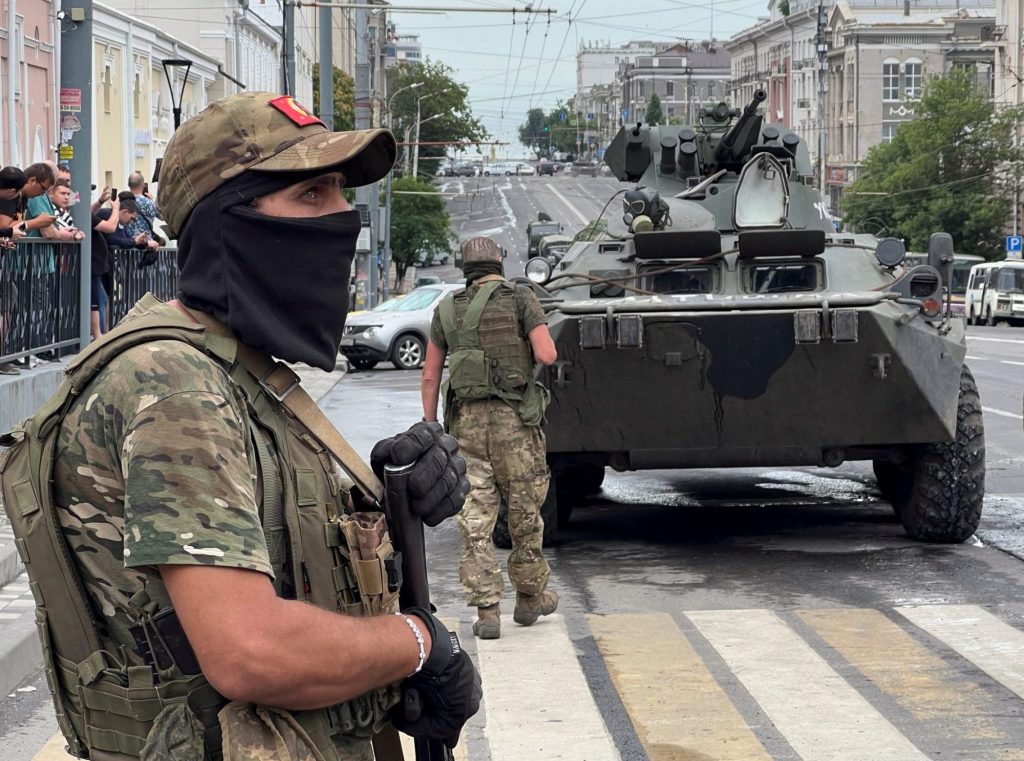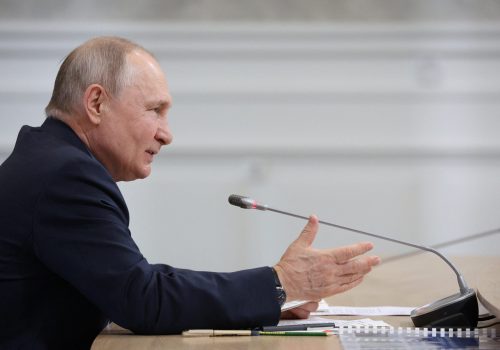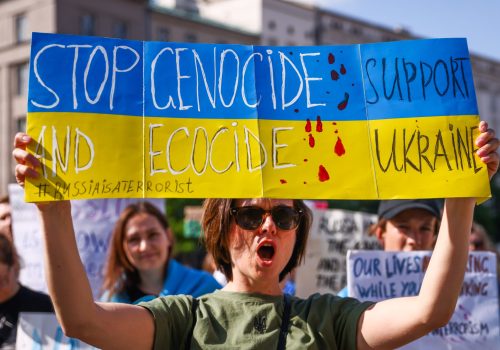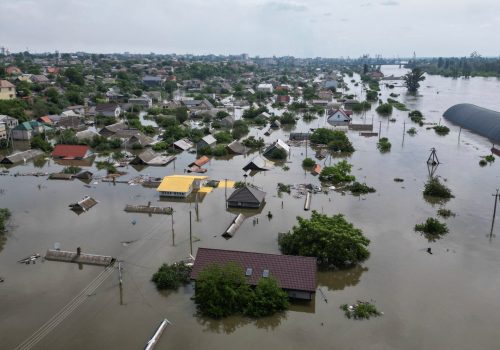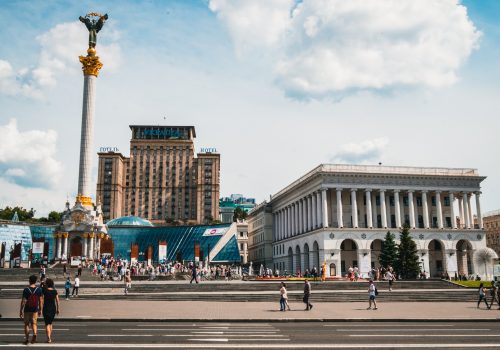
Ukrainians have good reason to cheer Russia’s Wagner rebellion

As the Wagner mutiny unfolded in Russia over the weekend, Ukrainian social media was flooded with memes about popcorn as millions of Ukrainians settled down to enjoy the spectacle. This gleeful reaction was perhaps predictable, given the unimaginable horror and suffering Russia has brought to Ukraine over the past sixteen months, but there may also be a number of good practical reasons for Ukrainians to cheer Yevgeniy Prigozhin’s short-lived revolt. The exact terms of the deal that caused the Wagner warlord to call off his mutiny are not entirely clear and may still be subject to revision, but it is already safe to say that the affair has left Russia weakened and demoralized in ways that favor Ukraine.
The first point to note is that the drama is likely to continue. As Russia’s neighbors can all testify, Vladimir Putin does not honor agreements. He is also notorious for never forgiving traitors. Whatever happens next, we will almost certainly witness the end of Wagner as an independent military force. Individual units will either be broken up, exiled to Belarus, or integrated into the regular Russian army. Putin and his military chiefs simply cannot run the risk of allowing the mercenary group to maintain its powerful military potential.
This will have a considerable impact on the invasion of Ukraine. Wagner troops were responsible for virtually all of Russia’s modest advances over the past year, including the much-hyped seizure of Bakhmut. Wagner’s success was largely down to a distinctive and brutal military doctrine heavily dependent on human wave tactics. These shock troops will find life very different in the ranks of the regular Russian military. Russian generals will view all former Wagner fighters with suspicion and will be reluctant to give them prominent offensive roles. This is a sensible security response to recent events, but it will undermine the Russian military’s already extremely limited ability to advance in Ukraine.
With Russia’s most effective troops no longer playing a prominent role in the invasion, this will increase the options for Ukrainian commanders as they look to develop the country’s current summer counteroffensive. This may have particular significance for the frontline sector close to Bakhmut in eastern Ukraine, where Wagner units were instrumental in securing earlier Russian gains. Ukrainian forces have already made significant advances to the north and south of Bakhmut, and will now be looking to capitalize on the destabilizing impact of the Wagner rebellion in order to push further.
Subscribe to UkraineAlert
As the world watches the Russian invasion of Ukraine unfold, UkraineAlert delivers the best Atlantic Council expert insight and analysis on Ukraine twice a week directly to your inbox.
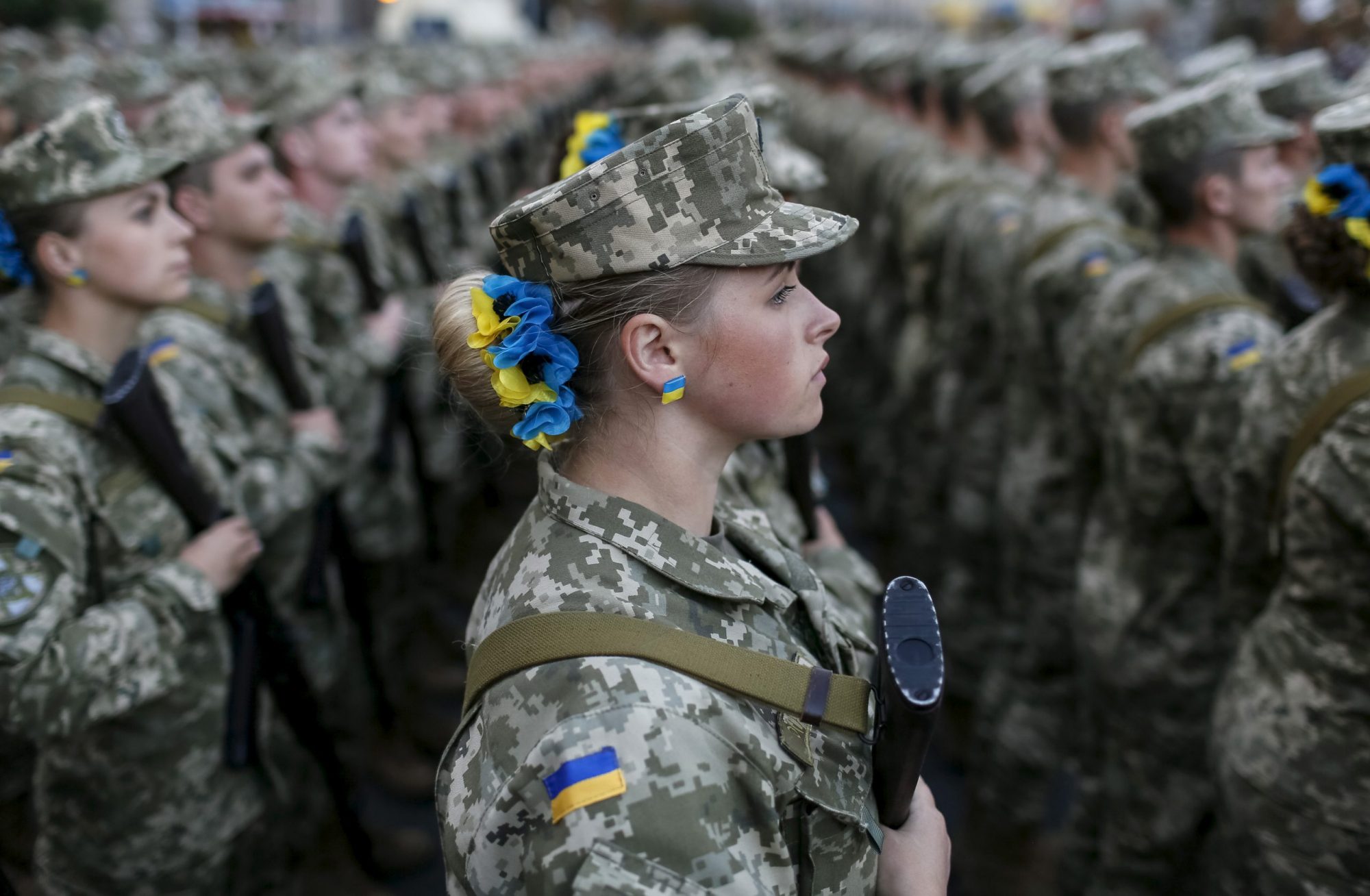
-
-
-
This field is for validation purposes and should be left unchanged.
Ukraine’s military planners may also be encouraged to expand on earlier incursions into the Russian Federation itself. The Wagner mutiny exposed a shocking lack of military defenses inside Russia, with Russian army officials scrambling to assemble units and gather equipment from across the country. Prigozhin was able to seize the major Russian city of Rostov-on-Don without a fight, including the military headquarters of the entire Ukraine invasion. His troops then advanced virtually unopposed through the Russian heartlands before unilaterally deciding to end their march on Moscow less than two hundred kilometers from the capital city. In the space of a single day, an apparently defenseless Russia found itself on the brink of either civil war or collapse.
This remarkable state of affairs was possible because Putin has deployed the vast majority of Russia’s military potential to Ukraine. The Wagner revolt demonstrated conclusively that there are no more reserves to draw upon. Putin is already close to the maximum of his capacity and has very limited possibilities to escalate the invasion of Ukraine, even if he wished to do so.
This creates all manner of tempting opportunities for Ukraine, which has so far been careful to limit the scope of its military activities inside Russia, in part due to concerns voiced by Kyiv’s international partners. That may now change. In the weeks prior to the start of Ukraine’s summer counteroffensive, Ukrainian-backed Russian militias launched a number of cross-border raids from Ukraine into Russia’s Belgorod region. While these thrusts were largely symbolic, Ukraine could soon become more ambitious. With the Putin regime seemingly unable to defend itself and in no position to escalate, we may witness bolder Ukrainian military operations on Russian territory.
Eurasia Center events

Perhaps the most encouraging aspect of the whole Wagner drama from a Ukrainian perspective was the obvious weakness and division it exposed within Russia. Any country fighting a major war needs unity, and today’s Russia is clearly not united. Members of the public in Rostov-on-Don and elsewhere appear to have enthusiastically backed the rebellion, while others were indifferent. The limited military presence inside Russia made no serious attempts to intervene, while there was little indication of any surge in public support for Putin or condemnation of Prigozhin. This is all a very long way from the propaganda image promoted by the Kremlin of a strong Russian state supported by a proudly patriotic populace.
The situation in Russia is not yet comparable to the mood in 1917 on the eve of the Bolshevik Revolution, but the Wagner mutiny is an extremely dangerous signal for Russian society. Any infighting is bad for morale, and the spectacle of Russia’s most successful military force turning against the country’s military leaders is particularly demoralizing. This will damage the fighting spirit of Russian troops in Ukraine while also seriously undermining Putin’s personal authority on the home front.
For Ukraine, the outlook is more promising. The Wagner mutiny was a brief affair, but it has led to the sidelining of Russia’s most effective fighting force while also highlighting the weaknesses and limitations of the Putin regime. This could create practical opportunities for Ukraine’s current counteroffensive, and will boost confidence in the country’s ultimate ability to achieve a decisive victory over Russia.
Andriy Zagorodnyuk is chairman of the Center for Defence Strategies and an advisor to the Ukrainian Government. He previously served as Ukraine’s minister of defense (2019–2020).
Further reading
The views expressed in UkraineAlert are solely those of the authors and do not necessarily reflect the views of the Atlantic Council, its staff, or its supporters.

The Eurasia Center’s mission is to enhance transatlantic cooperation in promoting stability, democratic values and prosperity in Eurasia, from Eastern Europe and Turkey in the West to the Caucasus, Russia and Central Asia in the East.
Follow us on social media
and support our work
Image: Fighters of Wagner private mercenary group stand guard near the headquarters of the Southern Military District in the city of Rostov-on-Don, Russia, June 24, 2023. (REUTERS/Stringer)
